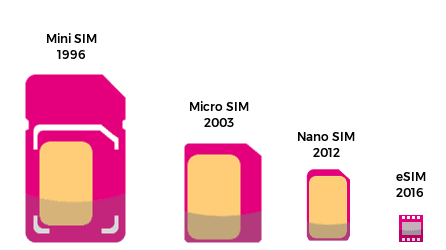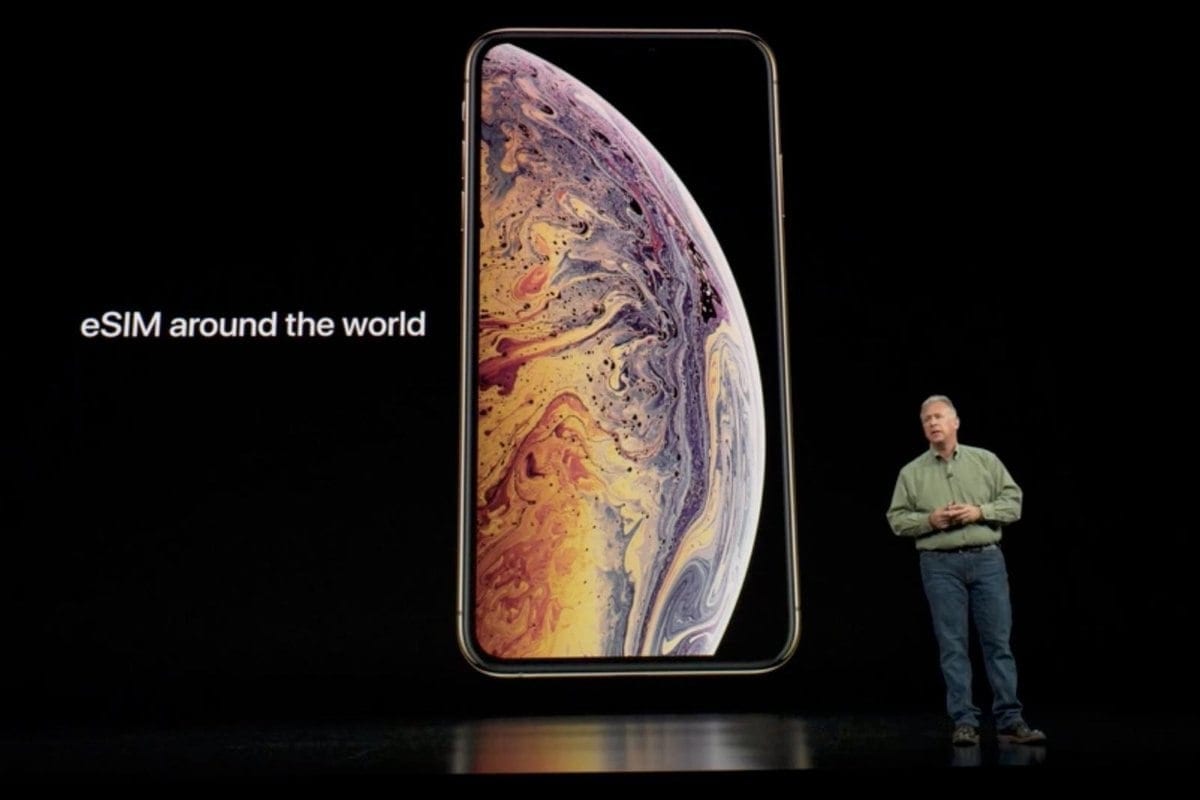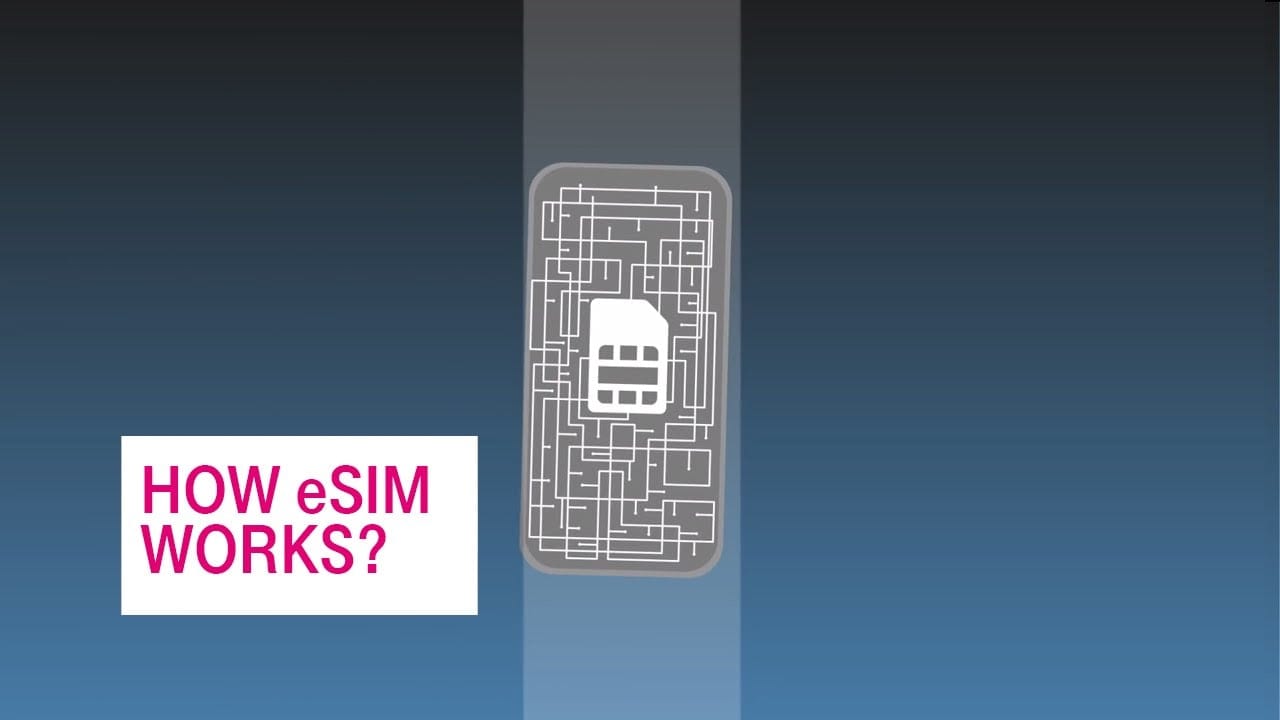The word “eSIM” has been thrown around a lot lately with so many tech companies adopting the tech in their various gadgets. The trend is growing and more tech companies seem to be adopting the ‘new‘ Innovation, but what do we know about the so-called ‘eSIM’ and how beneficial is it to both us the consumers and to the mobile operators. We will be taking our time here to know more about this new tech, what it has to offer and if it is really worth it. But first, let’s have a look at what a SIM card in general means.
Page Contents:

SIM (Subscriber Identity Module) is a small chip that holds information about the cell phone users. The chip has somewhat remained the same size but the overall size of the SIM card has reduced, drastically. The first SIM card was the size of a credit, otherwise known as the Full Sized SIM. It got way smaller to the Mini SIM, Then the Micro SIM before the Nano SIM. Now we have an all new SIM format – The eSIM.
SEE: How To Use Dual SIM on iPhone XS and XS Max – eSIM war
eSIM simply stands for embedded SIM. This means that there is no physical SIM or SIM Slot, unlike the devices we have now that requires you Input an actual SIM into the dedicated SIM Slot. The eSIM, on the other hand, has been embedded into the device while it was being manufactured just like the SOC (System On Chip). I know you must be thinking of what happens when you want to switch networks or switch SIMs. Well, you can do that with the eSIM because it is rewritable. This means you can switch from one network operator to another or between the same operator with just a phone call and boom! Your old ‘line’ gets overwritten by the new ‘line’ and just like that, you have a new line. No issue of removing one SIM to be replaced with another.
Mobile operators on the hands will also see this as a welcome development as they would save on the cost of manufacturing lots and lots of physical SIM cards. So its kind of win-win situation for both the mobile operators and we the consumers.
Why the eSIM? And Why is the eSIM replacing the Nano SIM?
For one, eSIM is the future. It also has so much more advantages over the previous nano sims. Most notable of all is the compatibility with a wide range of devices. You see, Nano was/is great but the problem with it is that it takes up too much space compared to the eSIM which is about the size of my pinkie nail. This makes it difficult for it to fit into other devices like smartwatches, fit bands etc. With the eSIM, it fits perfectly into various devices. Another perk of the eSIM is the ‘one hole down’ theory – the SIM Slot gone. The 3.5mm headphone jack is gone and we have wireless charging. The aforementioned two are geared towards eliminating the holes in a smartphone and with the Sim slot gone, we are left with the speakers and mic hole. A huge step towards making an even better water-resistant/proof Smartphones.
Pros/Benefits
– Compatible with smaller devices like Smartwatches, Fit bands, Personally Assistants etc.
– Smaller in size compared to the previous Nano Sim.
– Ease of Use.
– One step forwards towards a better waterproof/water-resistant Smartphones.
– Eliminates the risk of a damaged/broken SIM card.
Cons
The tech is somewhat new and so far doesn’t have any disadvantages. However, it is almost impossible that it doesn’t have at least one disadvantage. Off the top of my head, I can think of one issue consumers might face with the eSIM. Picture this, your phone gets damaged, refuses to turn on or you change phones frequently. With the Nano SIM or any other SIM before that, all you had to do is just pop out the SIM tray, take out the SIM and slot it into the new phone. With the eSIM, it’s most likely going to be a lot more time-consuming as you probably have to go through some kind of installation/Downloading process to get the SIM working on your new device. The process might get easier or simplified overtime by the mobile operators in the future though.
Future Of eSIM(s)?
There is no future for the eSIM. It is the Future and it is already here. Although the tech is really new and it is gonna take some time before we see a widespread of it but it seems to be coming along quite nicely on various devices. Google Pixel 2 and 2 XL, Apple Series 4, iPhone Xs, Xs Max, and XR just to name a few all have the eSIM. However, the adoption on the mobile operators’ part seems to be lacking behind as only a handful of mobile operators around the world have support for eSIM devices having been out since 2016. Nevertheless, it will one day get there, eventually.
Wrapping Up
For a start, most phones with eSIM come with one standard Nano SIM slot and then the eSIM. This reminds me of those dual Mini/Micro and Micro/Nano Smartphones. It’s only a matter of time before we start seeing dual eSIM Smartphones and other devices that rely only on WiFi for internet connection get their stand-alone internet Support through eSIM.



this is a nice tech and i think it gonna take a bit of time before it gets implemented on mid range phones like tecno, infinix and others.